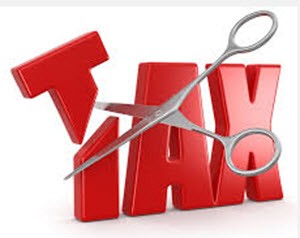The tax treatment of your investment in a Covered Call ETF will very depending on jurisdiction. Always check up on applicable laws and regulations before you make any investment.
 When we talk about taxes and ETF, were are usually taking about two things and it is important to not mix them up.
When we talk about taxes and ETF, were are usually taking about two things and it is important to not mix them up.
- The tax that the fund itself must pay.
- The tax that you as a shareholder in an ETF must pay.
In many jurisdictions, the ETF will only pay tax on income made that is not payed out to shareholders before the income year is over. Because of this, it is common to schedule a special payment to the shareholders close to the end of the income year.
Shareholders will, in most jurisdictions, pay tax on the money they receive from the fund. In some jurisdictions, the income count as dividend payments and receive a more favorable tax treatment than other types of capital gains.
In some jurisdictions, an important tax-distinction is made between dividends received by the fund, income generated by selling options, and income that has been generated by selling fund assets and making a profit that way. A shareholder may be obliged to pay one type of tax on certain payments received from the fund and another type of tax for other payments received from the fund.
Some ETFs never distribute capital gains to shareholders that would create a responsibility for the shareholder to pay capital gains tax. Instead, the fund retains the money and invests it, with the hope of creating a class of income that can be distributed to shareholder without triggering tax liability for the recipients.
This article was last updated on: December 17, 2015
